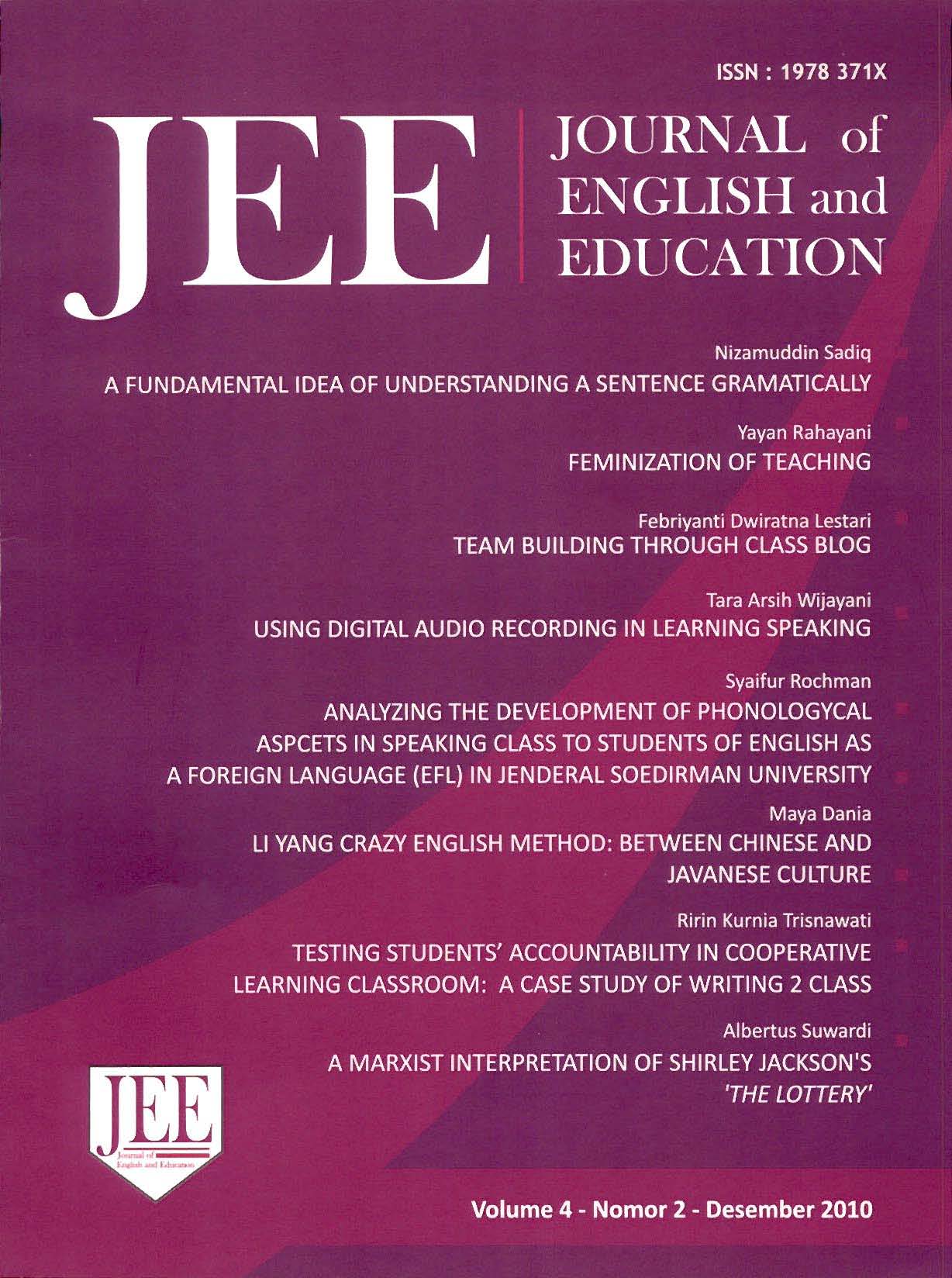Main Article Content
Abstract
Digital Audio Recording is a media formed in CDs to enhance students' listening skill. Digital audio recording was conducted in relation to the fact that there are a lot of students who have learned English for several years but they are still reluctant to speak. The process of using digital audio recording started with listening session to show some examples of a situational conversation and the expressions that can be used in it. The expressions were in common situations that students usually face in daily speaking English. The next steps were composing their own speaking as well exposed in the listening materials and recording their voice in a digital form using sound recording in a computer. Using digital audio recording created atmosphere of fun to the students to start speaking in English after they have got the exposure from the listening materials. The students are allowed to operate their recording and listen again to what they have produced in speaking.
Digital audio recording is an electrical or mechanical inscription and re creation of sound waves, such as spoken voice. Digital audio recording was used in this research as digital audio records in listening materials and the students' projects. Digital audio records can be kept eternally as long as they are not corrupted by virus. Other goodness of digital audio recording is it can track precisely any parts wanted by the listeners. So the teachers could easily which part was needed to repeat for some times. It made listening activities easier to conduct and clearer in quality of sounds compared to analogue one.
The events depicted the process of learning speaking in language laboratory and in the classroom and how students are learning speaking using digital audio recording. By looking into their learning and performance in speaking using digital audio recording, it can be seen how far this phenomenon affects students' language production. It would show their enjoyment in learning English and they could see their weakness in performing speaking. Students' reflection on using digital audio recording to learn speaking was to hear the students' voice on it. Teacher's voice was also used as supporting points on how this phenomenon contributes to students' performance in speaking. Moreover, digital audio recording helps them to know their speaking skill level and hopefully would improve their speaking ability.
The findings of the research contribute to the understanding of the phenomenon, that using digital audio recording becomes the needs and is beneficial to support students in learning a-language to improve their productive skill i.e. speaking ability and performance, personally for their future careers. For the teachers, it can be beneficial to pedagogical suggestions. The findings imply suggested learning activities regarding to students' autonomy and empowerment. Eventually, the findings of this research would humbly contribute in increasing life quality in broad understanding.
Keywords
Article Details
Copyright (c) 2016 JEE, Journal of English and Education

This work is licensed under a Creative Commons Attribution-ShareAlike 4.0 International License.
Authors who publish with this journal agree to the following terms:
- Authors retain copyright and grant the journal right of first publication with the work simultaneously licensed under a Creative Commons Attribution-ShareAlike 4.0 International License that allows others to share the work with an acknowledgment of the work's authorship and initial publication in this journal.
- Authors are able to enter into separate, additional contractual arrangements for the non-exclusive distribution of the journal's published version of the work (e.g., post it to an institutional repository or publish it in a book), with an acknowledgment of its initial publication in this journal.
- Authors are permitted and encouraged to post their work online (e.g., in institutional repositories or on their website) prior to and during the submission process, as it can lead to productive exchanges, as well as earlier and greater citation of published work (See The Effect of Open Access).

